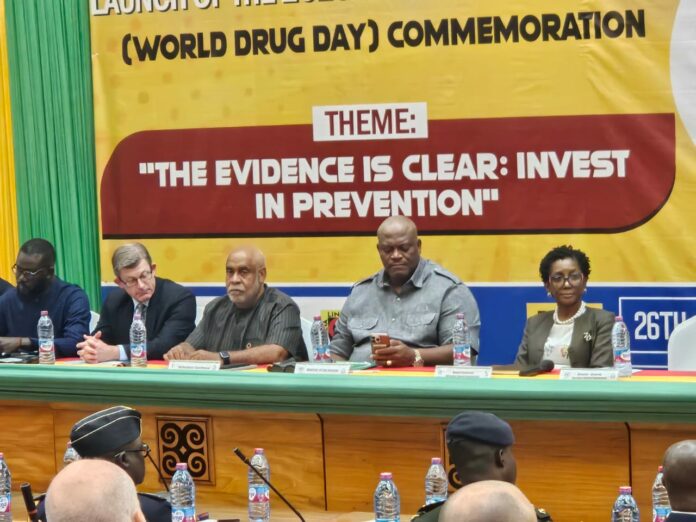Drug use and trafficking remains a major security issue globally worsening instability and causing untold harm to many globally despite interventions available to curb the menace.
The World Drug Report 2024 indicates an alarming expansion of local drug market in Africa posing a growing public health crisis.
Although an estimated 64 million people worldwide suffer from drug use disorders, only one in 11 are treated. The number of people who use drugs has risen to 292 million in 2022, a 20 per cent increase over 10 years. Cannabis remains the most widely used drug worldwide with 228 million users, followed by opioids with 60 million users, amphetamines (30 million users), cocaine (23 million users), and ecstasy (20 million users).

Women receive less access to treatment than men, with only one in 18 women with drug use disorders in treatment compared to one in seven men.

At the World Drug Day event in Accra, West and Central Africa, Ghana inclusive, are reported to have the highest use of cannabis with 31 million people on drug use with an alarming rapid diversification of the local drug market.

While globally, drug traffickers are more likely to be prosecuted than those arrested for drug usage to break the network chain, in Africa the pattern is reversed. This has been largely attributed to lack of funds to enhance prevention practices by governments.

Head of Law Enforcement at the United Nations Office on Drugs and Crime UNODC, Cheikh Toure, spoke about measures to tackle drug use while urging government to do more.
‘‘Ghana has done tremendously to have a law that brings a legislation to treat drug users. However, one ley element that needs to be understood is that we don’t have a full control and understanding of our local criminal network,” he said.

Director-General of the Narcotic Control Commission, Keneth Adu-Amanfoh, says a lot of progress has been made as the country works towards rehabilitation than prosecution of users.

“Once a court of jurisdiction is able to get evidence that this individual is an addict and not a trafficker, that person will not be jailed but referred to the rehab center,” he said.
Interior Minister, Henry Quartey, who delivered the keynote address on behalf of the President re-affirmed government’s commitment to support the agencies to deliver on their mandates.

“Ghana has never been spared by the impact of drug trafficking, drug abuse and attendant health problems. However, it is heartwarming to state that Ghana acknowledges the challenges with the implementation of the international and domestic drug policies, particularly for health and safety for the Ghanaian society,” he said.

By Sarah Apenkroh









